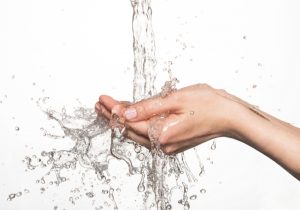It’s easy to see that a sudden, gushing leak or a badly burst pipe is wasting an enormous amount of water. The thing that might not have occurred to you is that those leaks get fixed immediately—because they truly are emergencies—but slow leaks can go on for a long time. At first, they might not be noticed. Then, homeowners might not think it’s urgent to deal with them.
Months or years could go by, with a slow leak just gradually dripping away. But if it’s just drips, it can’t be much water, can it? Is it really urgent to have slow plumbing leaks fixed promptly? How much water can a plumbing leak waste? We’ve got some information that might surprise you.
Drops Add Up
If you put a measuring cup below your plumbing leak, how much water would you catch? Well, you don’t really have to go through that process, because we’ve got some simple answers for you already. Drops add up very quickly! The USGS (United States Geological Survey) says that it only takes 15,140 drops to make a whole gallon of water.
Does more than fifteen thousand seem like a lot? Well, let’s consider how many drops are occurring. Just five drips a minute, one every twelve seconds, would turn into half a gallon in just a little more than 24 hours. That measuring cup would have long since overflowed!
Half a gallon of water is not something you want poured into your kitchen, bathroom, subfloor, or basement every single day. It could do a lot of damage to the wooden structure of your home. If it got onto electrical wires or equipment, it could be disastrous. Now imagine that the leak is slowly getting worse, as they often do. It could be a gallon a day! It could be more!
In fact, that same organization, the USGS, says that 180 gallons of water is wasted from the average home every week! Outdoor faucets, garden hoses, water heaters, dripping faucets, pinhole leaks in pipes… There can be many sources leaking just a tiny bit, adding up to a tremendous, expensive waste: almost ten thousand gallons a year.
Finding Slow Leaks
The first thing you need to do is realize that you’ve got a problem. Warmth in the walls or your water heater running when you haven’t been using the hot water indicates a leak in a hot water pipe. These are the most common pipes to leak. Other signs can include dripping sounds, water stains, high humidity or mildew in the home, or rising water bills.
Your plumber can help you find the source of these leaks. Don’t worry, they won’t have to pull down all your walls to see your piping! Modern plumbers use high-tech equipment and advanced skills to pinpoint leaks while keeping your home in good condition. So when you need plumbing repair in Glenview, IL, don’t hesitate!
For expert plumbing service, installations, or maintenance, contact Reliance Plumbing Sewer & Drainage, Inc. Our knowledgeable plumbers serve the North Shore and Northwest Chicago suburbs. Rely on Reliance!

